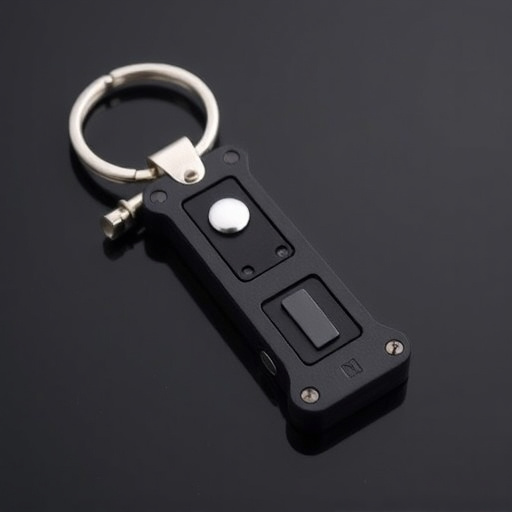The legal status of non-lethal keychain defense tools varies globally, with local laws dictating age restrictions, permissible locations, and use cases. Users must thoroughly research these regulations to avoid legal issues, especially regarding force types and potential harm. Understanding one's rights and responsibilities is vital for responsible deployment and compliance.
“In today’s unpredictable world, personal safety is paramount. This article serves as a comprehensive guide to navigating the legal landscape surrounding non-lethal keychain defense tools, also known as personal protection devices. We delve into the understanding and exploration of these compact self-defense mechanisms, focusing on their legality and limitations. From state-specific regulations to ensuring compliance, readers will gain insights into selecting and carrying non-lethal keychain defense tools responsibly.”
- Understanding Non-Lethal Keychain Defense Tools Legally
- Exploring Legal Limits & Restrictions on Keychain Weapons
- Ensuring Compliance: State Laws for Non Lethal Self-Defense Devices
Understanding Non-Lethal Keychain Defense Tools Legally
Non-lethal keychain defense tools, often marketed as personal safety devices, have gained popularity for their compact size and ease of use. However, understanding their legal implications is crucial before considering them as a means of self-defense. These tools typically include items like pepper spray keychains or stun guns that emit an electric shock, aiming to incapacitate an attacker temporarily. Legality varies across jurisdictions; some regions permit these devices with specific restrictions, while others may completely ban them.
It’s essential for individuals considering such tools to research and comply with local laws. Age limitations, permitted locations (e.g., public spaces vs. private residences), and use-of-force regulations are common legal considerations. Additionally, understanding the consequences of misuse or accidental deployment is vital. Non-lethal defense options offer a layer of security, but their effective and responsible use requires knowledge of one’s rights and responsibilities under the law.
Exploring Legal Limits & Restrictions on Keychain Weapons
When considering the legal landscape surrounding keychain safety devices, particularly those with a non-lethal focus, it’s crucial to explore the limits and restrictions put in place by various jurisdictions. While personal defense is a legitimate concern, many regions have strict regulations on what constitutes an acceptable self-defense tool. Non-lethal keychain weapons, often designed for less deadly force applications, must adhere to these legal boundaries.
These restrictions can vary widely based on factors like the type of force employed, the potential harm to others, and the overall design of the device. For instance, some laws might differentiate between tools that use pressure points, electrical impulses, or other non-lethal methods, each having its own set of legal considerations. Staying informed about local laws is essential for those looking to carry such devices publicly, ensuring compliance with regulations to avoid any legal complications.
Ensuring Compliance: State Laws for Non Lethal Self-Defense Devices
When considering the legal requirements for keychain safety devices, particularly non-lethal self-defense tools, it’s crucial to understand state laws. These laws vary widely across different regions and can significantly impact what types of self-defense devices are legally permissible. Non-lethal keychain defense tools, designed for personal protection without causing lasting harm, must adhere to specific regulations.
Many states have enacted laws that classify non-lethal self-defense devices based on their potential force or damage. Some allow a wide range of options, including electronic stun guns and pepper spray, while others may restrict certain types of devices due to concerns over excessive force. It’s essential for consumers to research and understand the specific legal implications of any keychain defense tool they intend to carry, ensuring compliance with local regulations to avoid legal consequences.
When considering the legal requirements for keychain safety devices, it’s essential to understand that non-lethal keychain defense tools have varying legalities and restrictions across different states. Ensure compliance with local laws by thoroughly researching state-specific regulations. By staying informed about these legal limits and exploring the options available within them, you can make a responsible decision when choosing a keychain self-defense device for your personal safety. Remember, understanding the legal framework is key to maintaining peace of mind while carrying a non-lethal keychain defense tool.
